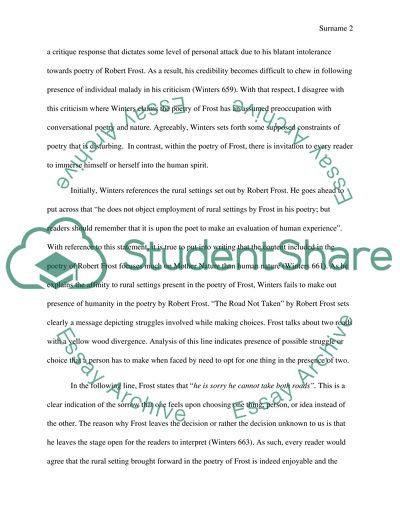Cite this document
(“Human Experience and Conversational Style in the Poetry of Robert Research Paper”, n.d.)
Retrieved from https://studentshare.org/literature/1452148-proving-robert-frost-s-poetry-contains-human
Retrieved from https://studentshare.org/literature/1452148-proving-robert-frost-s-poetry-contains-human
(Human Experience and Conversational Style in the Poetry of Robert Research Paper)
https://studentshare.org/literature/1452148-proving-robert-frost-s-poetry-contains-human.
https://studentshare.org/literature/1452148-proving-robert-frost-s-poetry-contains-human.
“Human Experience and Conversational Style in the Poetry of Robert Research Paper”, n.d. https://studentshare.org/literature/1452148-proving-robert-frost-s-poetry-contains-human.


